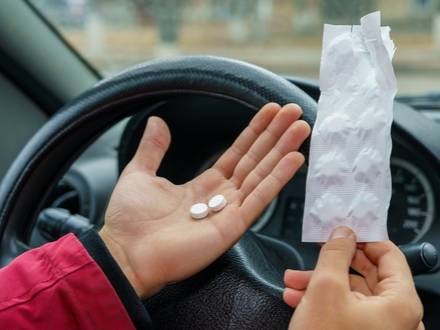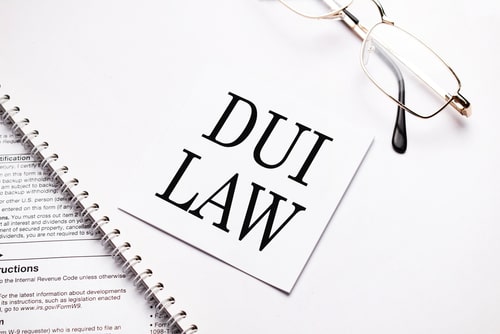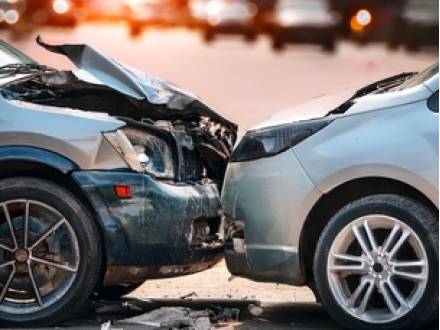Recent Blog Posts
Can You Get a DUI for Driving on Prescription Medication?
 When you envision a "standard" DUI charge, the image that comes to most people’s minds is someone who had one too many drinks before operating a vehicle. However, this is not the only circumstance in which you can be charged with DUI. If a prescription medication impacts your ability to drive, it could lead to a DUI charge in Illinois.
When you envision a "standard" DUI charge, the image that comes to most people’s minds is someone who had one too many drinks before operating a vehicle. However, this is not the only circumstance in which you can be charged with DUI. If a prescription medication impacts your ability to drive, it could lead to a DUI charge in Illinois.
Getting arrested for a DUI after taking legally prescribed medication can be distressing. At McNamara Phelan McSteen, LLC, our Joliet, IL criminal defense attorneys are here to help. Our attorneys have over 150 years of combined experience, so when you work with us, you can trust that your case will be handled by a knowledgeable firm.
Can I Sue for a Dog Bite in Illinois?
 People tend to think of pets as family. However, it’s easy to forget that dogs are still animals, and sometimes, they lash out without warning. When a dog bite results in a serious injury, you may wonder what legal recourse you have, if any. In Illinois, you can absolutely sue a dog’s owner or handler for a bite resulting in injury. A Joliet, IL personal injury lawyer can help you explore your options.
People tend to think of pets as family. However, it’s easy to forget that dogs are still animals, and sometimes, they lash out without warning. When a dog bite results in a serious injury, you may wonder what legal recourse you have, if any. In Illinois, you can absolutely sue a dog’s owner or handler for a bite resulting in injury. A Joliet, IL personal injury lawyer can help you explore your options.
At McNamara Phelan McSteen, LLC, we provide victims of dog bites with aggressive representation in injury claims. In the past, we have secured significant payouts for animal attacks, including a $100,000 settlement in a case involving a pair of vicious dogs.
Pros and Cons of Guilty, Not Guilty, and No Contest Pleas in Criminal Cases
 In criminal cases, a defendant must enter a plea to the charges brought against them. The plea entered is a crucial step in the legal process and can significantly impact the case outcome. Today, we will discuss three different types of pleas available in criminal cases and the pros and cons of each. If you are facing criminal charges, you must work with a defense lawyer to understand your rights and which plea makes the most sense for you.
In criminal cases, a defendant must enter a plea to the charges brought against them. The plea entered is a crucial step in the legal process and can significantly impact the case outcome. Today, we will discuss three different types of pleas available in criminal cases and the pros and cons of each. If you are facing criminal charges, you must work with a defense lawyer to understand your rights and which plea makes the most sense for you.
At McNamara Phelan McSteen, LLC, our Will County, IL criminal law attorneys have decades of experience working in the justice system. We will review your case closely to determine the best course of action, fighting for the best possible outcome.
Three Pleas to Consider for Criminal Cases in 2026
Under Illinois law, a defendant must enter a plea in response to criminal charges. The Code of Criminal Procedure outlines how pleas are entered and recorded in court, with guilty and not guilty being the primary options in most cases (725 ILCS 5/113-4). There is no one right answer for every case – instead, you should speak with an attorney to see what option best suits your circumstances.
Worker's Compensation for Repetitive Stress Injuries
 Repetitive stress injuries can happen to any worker with any job. Even white-collar workers with desk jobs can sustain this type of injury. A repetitive stress injury happens when you repeat the same motion, such as lifting or typing, over and over. Over time, those repeated movements can damage your muscles, tendons, or nerves. You might first notice that a body part is sore, but you can still use it. Then, problems like pain, stiffness, or reduced movement build up, and it gets to a point where you can’t ignore the injury anymore.
Repetitive stress injuries can happen to any worker with any job. Even white-collar workers with desk jobs can sustain this type of injury. A repetitive stress injury happens when you repeat the same motion, such as lifting or typing, over and over. Over time, those repeated movements can damage your muscles, tendons, or nerves. You might first notice that a body part is sore, but you can still use it. Then, problems like pain, stiffness, or reduced movement build up, and it gets to a point where you can’t ignore the injury anymore.
If you have suffered repetitive stress injuries on the job, you may be entitled to compensation. A dedicated Will County, IL workers’ compensation attorney can help you pursue the payment you deserve. At McNamara Phelan McSteen, LLC, we have helped clients secure significant payouts from workers’ compensation claims, including six-figure settlements.
How DUI Convictions Affect Your Driver’s License and Insurance
 A DUI conviction in Illinois can affect much more than a court case. It can limit your ability to drive. It can also raise your insurance costs for years. These consequences often begin quickly and continue long after fines are paid or probation ends.
A DUI conviction in Illinois can affect much more than a court case. It can limit your ability to drive. It can also raise your insurance costs for years. These consequences often begin quickly and continue long after fines are paid or probation ends.
People are often surprised to learn that license penalties can begin before a DUI case is even finished in court. If you are facing DUI charges, contact our Joliet, IL DUI defense lawyers as quickly as possible.
How Does a DUI Conviction Affect Your Driver’s License in Illinois?
A DUI arrest can trigger two separate legal processes. One happens in criminal court. The other is handled by the Illinois Secretary of State and focuses only on your driving privileges.
Illinois uses a system called statutory summary suspension. This is an automatic suspension of your driver’s license. It can apply even if you have not been convicted of DUI.
Understanding Pain and Suffering Damages in Personal Injury Cases
 Following a personal injury accident, there are generally two types of damages—economic and non-economic (sometimes known as special and general). Economic damages are straightforward, covering medical expenses, lost wages, and loss of future income. These are damages that have a specific number attached to them.
Following a personal injury accident, there are generally two types of damages—economic and non-economic (sometimes known as special and general). Economic damages are straightforward, covering medical expenses, lost wages, and loss of future income. These are damages that have a specific number attached to them.
Non-economic damages (735 ILCS 5/2-1115.2) are usually called "pain and suffering," and are subjective, intangible losses like pain, suffering, emotional distress, and loss of enjoyment of life. Non-economic damages are often more difficult to quantify and may rely on expert testimony. Illinois law allows injury victims recovery for pain and suffering caused by another’s negligence, but the value of these damages can vary widely.
If you are dealing with constant pain or are unable to perform the day-to-day tasks you did before the accident, then pain and suffering damages are meant to compensate you for those losses. Insurance companies will try to downplay pain and suffering, but Illinois courts recognize that the human toll of an injury is often tied to the most significant loss. A Will County, IL personal injury attorney can determine what your pain and suffering damages are and then tell an insurance company or jury how pain and suffering has altered your life.
What Are Your Rights if the Police Search Your Car Without Consent?
 Suppose you are driving home after a long day at work when you see flashing lights appear behind you. The officer approaches, asks a couple of questions, then says, "Mind if I take a look inside your car?" Before you have a chance to respond, the officer begins searching your car, even with no evidence of a criminal offense.
Suppose you are driving home after a long day at work when you see flashing lights appear behind you. The officer approaches, asks a couple of questions, then says, "Mind if I take a look inside your car?" Before you have a chance to respond, the officer begins searching your car, even with no evidence of a criminal offense.
These moments can escalate quickly, and many drivers are unaware of their constitutional protections that limit when and how police can search a vehicle without the owner's express permission. When an Illinois police officer begins looking through your car without permission, the fear and confusion can spike. Even if an officer claims to "smell something" or sees something in "plain view," or even insists that the search is "routine," there are protections in place for Illinois citizens.
Regardless of whether you were stopped in Chicago, Joliet, Springfield, or a rural county, Illinois law places limits on when police can search your car without your consent. If you are the victim of an illegal vehicle search, you need an experienced Will County criminal defense lawyer to build a solid defense on your behalf and show that the search was unlawful.
Does Fault Matter in a Workers’ Compensation Claim?
 If you are injured at work, you may be shocked and dismayed to find that your employer is trying to avoid responsibility for the accident by claiming it was your fault. Although Illinois is known for its no-fault workers’ compensation system, certain types of employee misconduct can bar recovery. But if you slipped while rushing or made a simple mistake, this cannot be held against you under Illinois workers’ compensation laws.
If you are injured at work, you may be shocked and dismayed to find that your employer is trying to avoid responsibility for the accident by claiming it was your fault. Although Illinois is known for its no-fault workers’ compensation system, certain types of employee misconduct can bar recovery. But if you slipped while rushing or made a simple mistake, this cannot be held against you under Illinois workers’ compensation laws.
In most cases, even if your own error led to your accident, you will still be entitled to medical and wage benefits under workers’ compensation. However, there are some exceptions, and you must understand when "fault" may actually matter for a work-related accident. If you are facing pushback for a work-related accident, consulting with a knowledgeable Will County, IL workers’ compensation lawyer can help ensure that your rights are protected and that you receive the benefits you are entitled to receive.
When Does a Repeat DUI Turn into a Felony?
 In Illinois – as in most states – a first or even second DUI often begins as a misdemeanor. Unfortunately, this can change quickly, and driving under the influence (DUI) can have serious, life-altering repercussions in the state. Although a first-time DUI will likely be charged as a misdemeanor, repeat offenses can escalate to felony charges.
In Illinois – as in most states – a first or even second DUI often begins as a misdemeanor. Unfortunately, this can change quickly, and driving under the influence (DUI) can have serious, life-altering repercussions in the state. Although a first-time DUI will likely be charged as a misdemeanor, repeat offenses can escalate to felony charges.
The difference may come down to specific statutory triggers, prior convictions, and the presence of aggravating circumstances. Understanding when and how this escalation occurs is crucial for anyone facing multiple DUI allegations. A Will County, IL lawyer can help you determine how to move forward with your case.
Misdemeanor vs. Felony DUI
In Illinois, the distinction between misdemeanor and felony DUI charges depends on several factors, such as:
First and Second DUI Offenses
What to Do After an Illinois Crash with an Uninsured Driver
 As if a car accident is not stressful enough, imagine finding out that the driver who hit you is uninsured. Despite the mandatory auto insurance laws in Illinois, many drivers continue to drive without coverage. According to the Insurance Information Institute, as of 2023, about 15.2 percent of Illinois drivers were uninsured, ranking the state at number 17 for uninsured drivers across the nation.
As if a car accident is not stressful enough, imagine finding out that the driver who hit you is uninsured. Despite the mandatory auto insurance laws in Illinois, many drivers continue to drive without coverage. According to the Insurance Information Institute, as of 2023, about 15.2 percent of Illinois drivers were uninsured, ranking the state at number 17 for uninsured drivers across the nation.
Depending on your own insurance coverage, you may have other options for recovery following an accident with an uninsured driver. Other potential options include a civil lawsuit (although a driver who cannot afford car insurance is unlikely to have much in the way of assets) and the Illinois Safety Responsibility Law.
 815-727-0100
815-727-0100













